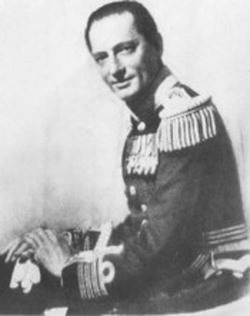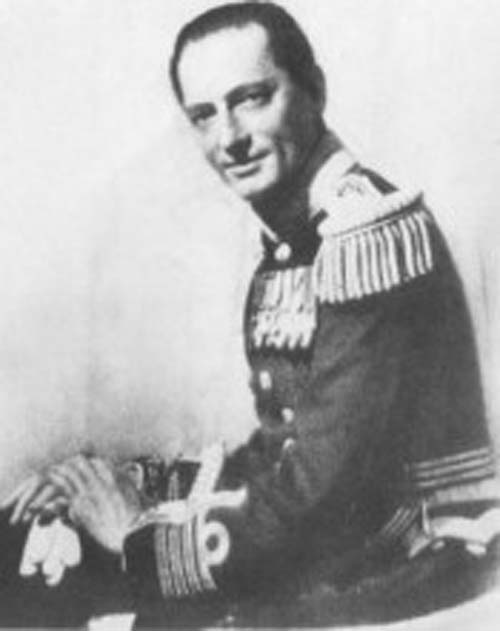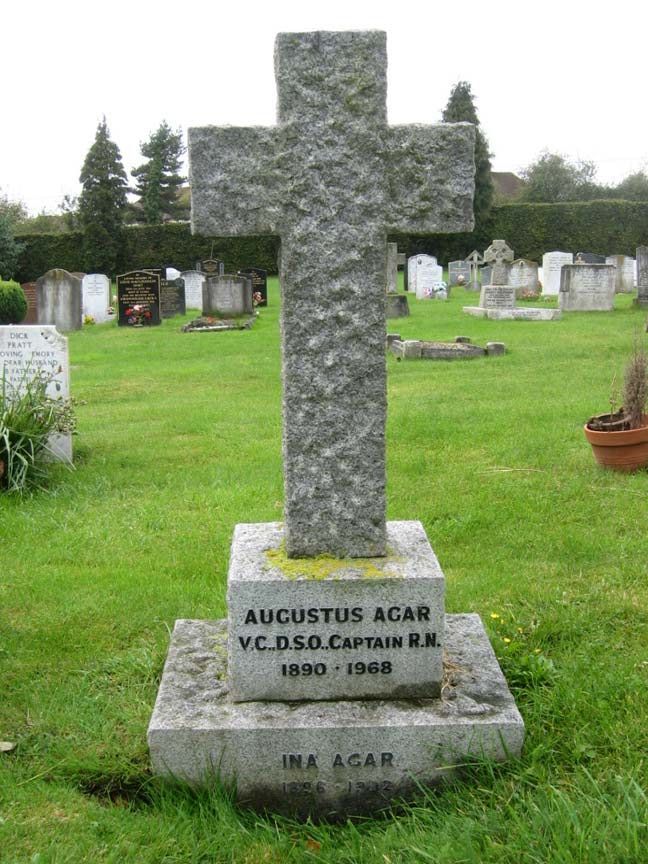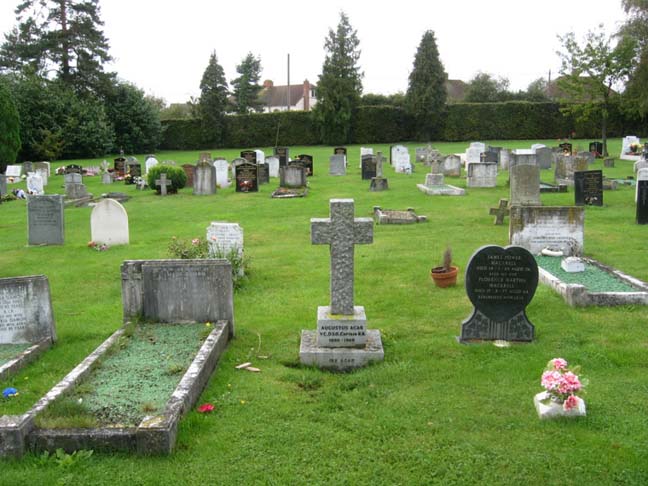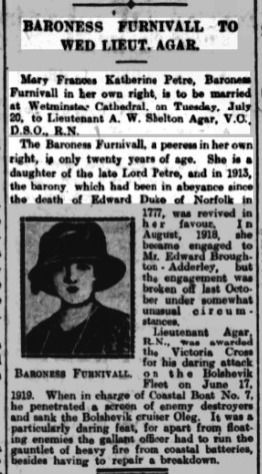First draft:
He was born in Kandy in Ceylon (now Sri Lanka), the thirteenth son of Irish parents, although his mother died just after his birth and his father died when he was eight, so he was sent to England to be educated at Framlingham in Suffolk and the Royal Naval College in Greenwich. When the First World War broke out, he was on board H.M.S. Hibernia, which at once turned around to Scapa Flow, and he was later to serve in the Dardenelles and the White Sea. After the Armistice, he was asked to volunteer for an undercover mission on board a coastal motor boat, based at Terrimki in Finland and ferrying British agents in and out of the Soviet Union. On the 17th. June 1919,
In the General Election of 1945, he contested Greenwich as a Conservative, but was defeated by the Labour candidate, Joseph Reeves.
His Victoria Cross is on display at the Imperial War Museum in London. In order to find his grave, use the more Northerly entrance, opposite Greenfield Lane, and turn left (North). Commodore Agar's grave is the eight one on the left, about twenty yards along the path.
First draft:
He was born in Kandy in Ceylon (now Sri Lanka), the thirteenth son of Irish parents, although his mother died just after his birth and his father died when he was eight, so he was sent to England to be educated at Framlingham in Suffolk and the Royal Naval College in Greenwich. When the First World War broke out, he was on board H.M.S. Hibernia, which at once turned around to Scapa Flow, and he was later to serve in the Dardenelles and the White Sea. After the Armistice, he was asked to volunteer for an undercover mission on board a coastal motor boat, based at Terrimki in Finland and ferrying British agents in and out of the Soviet Union. On the 17th. June 1919,
In the General Election of 1945, he contested Greenwich as a Conservative, but was defeated by the Labour candidate, Joseph Reeves.
His Victoria Cross is on display at the Imperial War Museum in London. In order to find his grave, use the more Northerly entrance, opposite Greenfield Lane, and turn left (North). Commodore Agar's grave is the eight one on the left, about twenty yards along the path.
Sponsored by Ancestry
Advertisement
Records on Ancestry
-
Geneanet Community Trees Index
-
UK and Ireland, Newspapers.com™ Obituary Index, 1800s-current
-
UK, Victoria Cross Medals, 1851-2004
-
England & Wales, National Probate Calendar (Index of Wills and Administrations), 1858-1995
-
Great Britain, Royal Aero Club Aviators’ Certificates, 1910-1950
Sponsored by Ancestry
Advertisement
